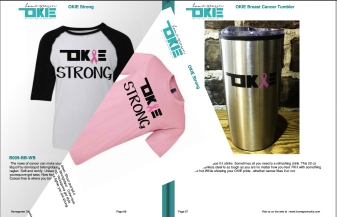Penalties for Software Piracy FAQ
The Copyright Act allows a copyright owner to recover monetary damages measured either by:
(1) actual damages plus any additional profits of the infringer attributable to the infringement, or
(2) statutory damages, of up to $150,000 for each copyrighted work infringed.
The copyright owner also has the right to permanently enjoin an infringer from engaging in further infringing activities and may be awarded costs and attorneys' fees. The law also permits destruction or other reasonable disposition of all infringing copies and devices by which infringing copies have been made or used in violation of the copyright owner's exclusive rights. In cases of willful infringement, criminal penalties may also be assessed against the infringer.
The penalties for under-licensing are the same as those for software piracy. Under federal copyright law the company may be liable for up to $150,000 for each software program infringed. The law also permits the software publisher to recover court costs and attorneys' fees it spends to sue the company and to destroy the all illegal software found at the companies. In cases of willful piracy, criminal penalties may also be assessed against the company.
The First Amendment is not a defense for committing copyright infringement. Harper & Row Pub., Inc. v. Nation Enterprises. [471 U.S. 539, 105 S.Ct. 2218 (1985)] Conversely, copyright laws are not restrictions on free speech, but instead provide protection to speech and expression. This protection seeks to promote creativity and the wide dissemination of ideas. The unlawful reproduction and distribution of copyrighted material is not protected by the First Amendment and is considered copyright infringement under Federal law. In addition, "inducing, causing or materially contributing to" the commission of a direct infringement may constitute contributory infringement {definition: selling a component of a patented invention, knowing that the component was especially made or adapted for use in the infringement of the patent and that it is not a staple article or commodity of commerce suitable for substantial non-infringing use is contributory infringement. 35 U.S.C.} under Federal law. Information or code posted on a web site to promote a direct infringement may also constitute contributory infringement and is not protected by the First Amendment.
Under "vicarious liability" {definition: When one person is liable for the negligent actions of another person, even though the first person was not directly responsible for the injury. For instance, a parent sometimes can be vicariously liable for the harmful acts of a child and an employer sometimes can be vicariously liable for the acts of a worker. } stipulations of the US Copyright Act, an employer is liable for acts committed by its employees when those acts are within the scope of their employment duties. Another theory of liability is the doctrine of contributory copyright infringement, whereby a party who does not do an infringing act but who aids or encourages it is liable for the infringement. If you were instructed by your employer to install software on your company's computer(s) in violation of -- or in excess of -- the software licenses, you may want to inform your employer of their obligations under the copyright law.
In the United States, the violator is liable for damages suffered by the copyright owner, plus any of the infringer's profits that are attributable to the copying, or statutory damages of up to $150,000 for each work harmed.
In the US, the infringer could be fined up to $250,000 and face a jail term of up to five years. Do people actually go to jail for this? Yes, they do.


